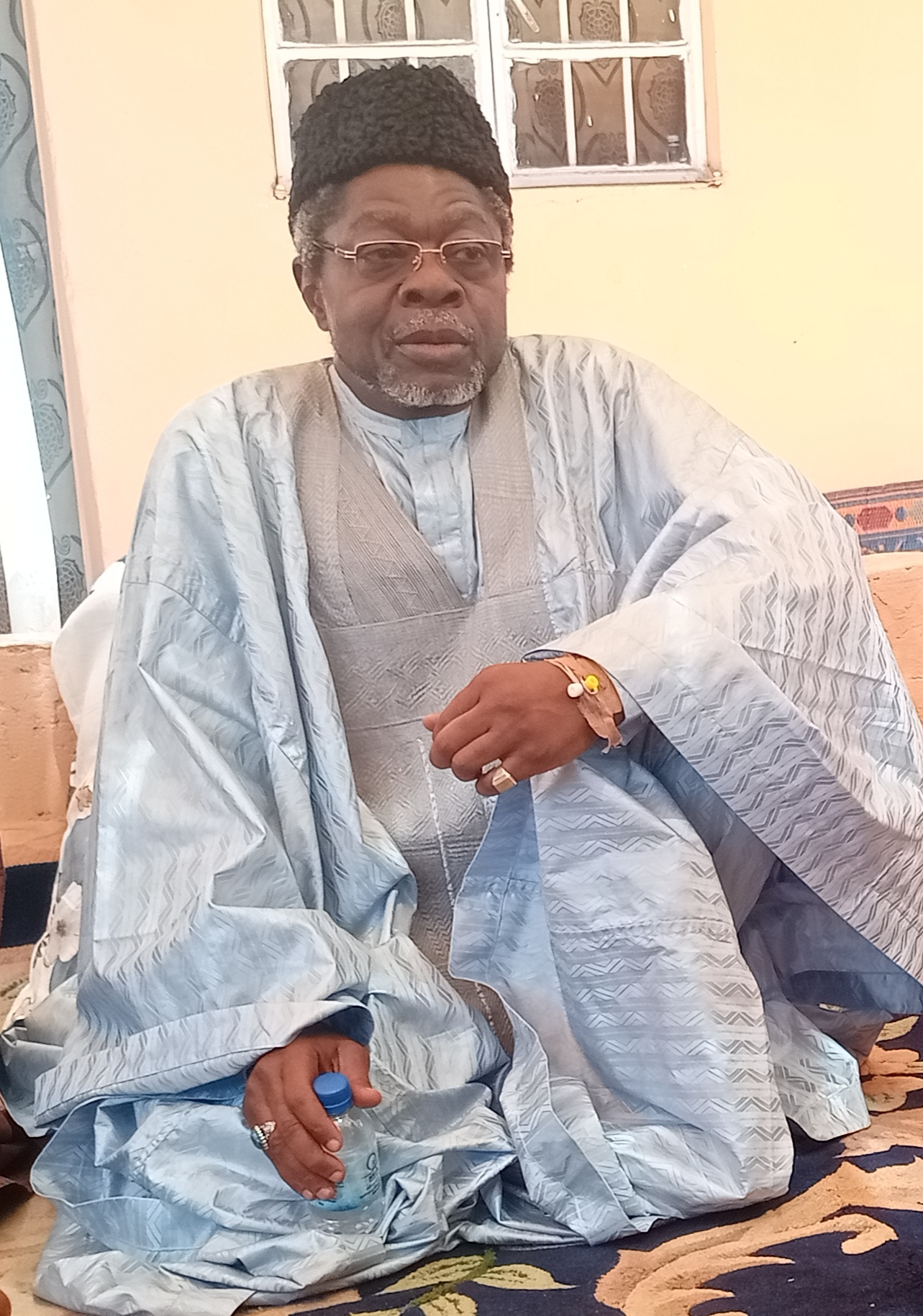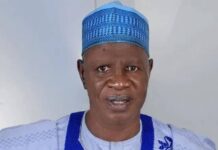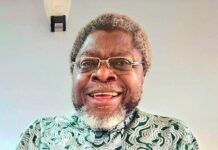Needed: One standard hospital per state (2), by Hassan Gimba
The Arbiter
Two days after I started taking the medication prescribed by Dr Heba, I could lift myself out of the wheelchair and walk about. By the fifth day, I walked into the hospital, gingerly, but surely, and came face to face with Dr Heba, who was not even surprised to see me on my feet, on her way to buy a cappuccino, I guessed.
We went to the waiting area and waited to be called in to see her. She soon returned, holding a cup of her drink. She asked me certain questions and, after taking my vitals, sent me to go for a Spirometry Flow-Volume Test, known as Lung Function Test (LFT).
One interesting and commendable attribute of Saudi hospitals, not least the Saudi-German, is that you do not have to come the next day for your test results. Once they admit you, ask fundamental questions and register your vitals, they start conducting tests. It is test upon test because once a result comes out, then another test would be conducted based on that result until they narrow down and nail the ailment. Anytime they start, they can take 24 hours, each team handing your case over to the next shift. And if you got tired and ran off to return the next day, as I once did, they will begin with you from the very beginning, not from where you ran off – the syringe punches, cannula and bandages, x-rays and all! I asked why and I was told, “Anything could have happened in your system since you left that could render yesterday’s results no more tenable.”
READ ALSO: Needed: One standard hospital per state (1), by Hassan Gimba
Well, back to spirometry. After the result came out, Dr Heba, who had earlier said she would be going for a quick break, decided to postpone it to attend to us. After studying the result, she recommended Pulmonary Rehabilitation which is physiotherapy and hydrotherapy. She decided to send me to the head of the unit whose schedule was full for the month but who decided to accept me nonetheless.
And so we met him. Small built with baldness setting in and a face full of smiles, Dr Amjad Alqurtabi was a sportish, friendly and easy-going fellow who was ever willing to do his job.
One thing with the medical personnel at the Saudi-German Hospital is that, apart from being professional and willing to be of assistance, they are friendly, going a long way to make you feel comfortable, at home, and cared for. A man may be excused to think the female personnel have fallen for him.
And you do not feel any obligation or indebtedness to them. For the first time in my interactions with health workers, all the rest being back in Nigeria, of course, I never felt they were doing me a favour or there was the need to dip my hands into my pockets to “appreciate” a health caregiver.
Dr Amjad, I learnt, is a descendant of the author of a book on fiqh (Islamic jurisprudence), Qurtabi, written in poetic form. It is one of those primary books studied to deepen knowledge of jurisprudence and also to learn the Arabic language. I got to know this because, out of curiosity, I told him that the name Qurtabi rang a bell, to which he opened up on his relationship with the famed author.
For those who might have read it, the book, Qurtabi, named after the town of the author, Shaykh Allama Yahya bn Ishaq bn Yahya al-Laisi, started with “Yaqulu Yahyal Qurtabiyyud dari; Almurtaji mathubatal ghaffari; Bi’ismil ilaHi abda’ul maqala; Faminhu arjul afwa wal ifdhaala,” which when translated means: “Says Yahya who lives (domiciled) in Qurtabi; A man expecting (desirous of) reward and forgiveness (from Allah); in the name of Allah, I am starting this discussion; From Him, I am expecting sympathy and greatness.”
Qurtabi was the name of Cordoba in Spain, called Andalusia at the time when the country was an Islamic nation.
Dr Alqurtabi went through the process of physically breaking the mucus that filled my lungs so that they could get expectorated and give relief to my lungs and chest. That would also allow me to breathe easily, which will reduce the Shortness of Breath (SoB) I struggled with due to insufficient oxygen.
My ailment, found out to be Chronic Obstructive Pulmonary Disease (COPD), is a non-communicable, irreversible chronic inflammatory lung disease that causes airflow blockage, emphysema and chronic bronchitis. And so one has to imbibe a lifetime habit of pulmonary rehabilitation. And that was what Dr Amjad Alqurtabi set out to put me through.
After massaging my chest to loosen the mucus, he handed me over to Coach Khalid, the man in charge of both therapies. Even though he is more fluent in Arabic, we hit it off instantly as friends because I saw in him a man enthusiastic to nurse me back to health. I could see happiness in his eyes at my progress and pride all over his face that he was part of it.
The first set of physiotherapy consisted of sessions on the treadmill, spinner bike and exercises on deep breathing. Next was hydrotherapy, where I was made to undergo various sessions and exercises in a heated swimming pool with a Jacuzzi, leading to full swimming and holding my breath for a time underwater.
After about ten days at it, I became strong enough to perform the Umrah and after two weeks, when Dr Heba called for another LFT, it was found out that my lung function had improved by over thirty per cent. No wonder the physiotherapy department of the Makkah Saudi-German is the best in the Saudi-German chain.
READ ALSO: I want to talk about Tinubu, even though I lost my mother, by Hassan Gimba
I still believe we can have hospitals with the standard of the Saudi-German. And what can hinder us from achieving such a feat? Three things make the Makkah Saudi-German great: adequate infrastructure, modern equipment for service delivery and wonderful, well-trained human resources, with the right attitude in tow.
I believe our states can build at least one great hospital and invite the Saudi-German to equip and manage them for a certain period. While doing that, our citizens will receive the best on-the-job training after graduation and may further benefit from exchange programmes with the franchise.
All these will allow them to internalise the concept of global best practices in health care delivery. That will be a win-win situation for us and will in no small measure galvanise our development individually and as a nation because a healthy nation is a wealthy one.
Hassan Gimba is the Publisher and Editor-in-Chief of Neptune Prime.
Follow the Neptune Prime channel on WhatsApp:
Do you have breaking news, interview request, opinion, suggestion, or want your event covered? Email us at neptuneprime2233@gmail.com






Re-Needed: One standard hospital per state by Hassan Gimba
As a student of Education, I am not unmindful of the fact that the concept of “Giftedness” cannot be defined, but rather described. This is because, giving a definition is capable of making the idea confined to certain limitations, and in the real sense, it is unlimited. One can be gifted in speaking, running, building, design, shooting, cooking, dancing, make-up etc. (Dr.) Hassan Gimba is indeed gifted in writing. He is one of the very few writers that no matter how tight my schedules are, I always find it difficult to skip his column, even if it means carrying it over to a leisure time. Everytime I read him, I become more educated, enlightened and better informed.
The part II of the article for this week is more detailed and all-encompassing than the part I of last week. Apart from the usual plausibility, ensured connection and proper linkage between words, sentences and paragraphs, one other area the writer displayed expertise is the usage of medical terminologies and their appropriate placements as if he belongs to the medical profession.
The three unique components that keep Saudi-German Hospital different from our hospitals as enumerated by the writer are; adequate infrastructure, modern equipment and highly trained personnel. Of course, these make a hospital. Nigeria as a nation and individual state governments can afford such. What is most needed for the actualisation of the above is *Genuine commitment and sincerity of intent* from the Executives.
For the infrastructure and modern hospital equipment; giving priority to health, adequate budgetary provisions, prudence and judicious use of public resources can guarantee them, especially looking at the frivolous and wasteful expenditure by governments coupled with the massive corruption in the economy. If these are attended to, one will be left with the thought that Nigeria stands a chance to compete favourably with its contemporaries.
For highly trained personnel, it’s a common knowledge that Nigeria records high rate of brain drain especially in the medical profession. This became a source of serious concern that even made National Assembly to take action. It is also a fact that those Nigerian expatriates perform excellent oversees in terms of adherence to set standards and exhibition of ethical practice of their professions in line with global best practices. This is a pointer that with conducive atmosphere, we can bell the cat.
However, before conclusion, I thought the justification for the topic would be elaborated more than it was, to unveil detailed illustrations and arguments on how we can get it right as a nation, considering the fact that it’s the basis upon which the article was developed on.
For instance, one may argue that each state of the federation has a Federal Medical Centre and/or a Teaching Hospital as tertiary health care providers. The fact remains that those hospitals are overwhelmed, bedevilled with lack of adequate infrastructure, modern equipment and shortages of manpower, making them unable to perform optimally.
From another angle, one needs to ponder and reflect on the National Orthopaedic Hospital, Dala Kano and National Eye Centre, Kaduna. They are specialized hospitals built by military administration, serving at least 20 states for numerous years. With the decades of years after their establishments, it is expected that the 25 years of transitional democracy should have extended such types of hospitals to geopolitical zones and even states. Unfortunately, even the conventional hospitals are not enough talk less of the specialized and no one raises eyebrow.
Despite being a member of the senior citizens “association” I am astonished and at the same time impressed that even at this age, he is still able to recall vividly, the stanzas of the primary book of Islamic Jurisprudence “Qurdabi”. It is actually an interesting book that its relevance isn’t outlived for the knowledge hidden therein. Adherents of Wahabiyya school of thought will reject the recitation of Qurdabi or criticize a portion of it for sharing a different understanding of an aspect of Theology with the author especially where he’s talking about the Creator in the book “Li annahu kaana wala makaana…..” simply translated as; He (Allah) is a Being but not confined to a location. This, perhaps, may be a topic for another day.
May the vital information presented in the article, as given free of charge, without consultation fee serve as eye-opener to our leaders and impact positively on the populace. May Allah reward the writer for the knowledge and experience shared. May he also live long in good health and abundant blessings of Allah to continue giving the society, sense of direction.
Thank you.
Yusuf Alhaji Lawan writes from Hausawa Asibiti Ward, Potiskum Yobe State. He can be reached via nasidi30@gmail.com.
This is an interesting article, master piece. May these vital information given free of charge, without consultation fee serve as eye-opener to our leaders and impact positively on the populace.